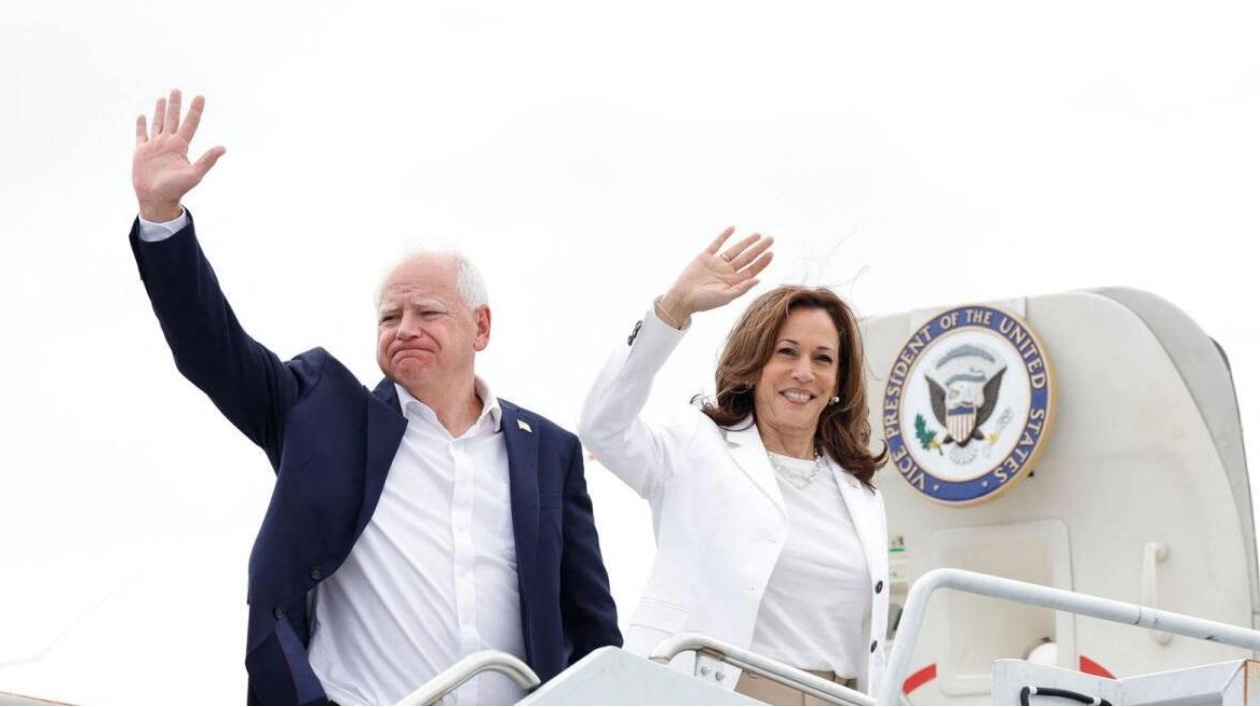Venture capitalists have expressed their support for Kamala Harris' presidential campaign, highlighting key issues such as women's reproductive rights, climate change, and a more startup-friendly environment, according to a survey released on Wednesday. Out of approximately 800 venture capitalists who signed a public letter of support, 225 provided detailed reasons for backing the Democratic candidate and their preferred policies, as reported first by Reuters. The majority of these 225 respondents disagreed with the Supreme Court's decision to overturn Roe v. Wade, viewing it as detrimental to women in the workplace. Leslie Feinzaig, CEO of Graham & Walker, who initiated the pledge, emphasized that these issues are not merely social but also business concerns. Investors and industry leaders see Harris, a Californian with connections to Silicon Valley, as a tech-friendly candidate willing to collaborate with the industry, reminiscent of the Obama administration's approach a decade ago.
The open letter, titled 'VCs for Kamala' and disclosed in July, includes notable venture capitalists such as Reid Hoffman of Greylock and Vinod Khosla of Khosla Ventures. The 225 survey respondents, who chose to remain anonymous, were predominantly male (62%) and white (66%), with the majority aged between 35 and 64. Although party affiliation was not solicited, among those who disclosed, 70% identified as Democrats, while 30% were Republicans or independents, according to the poll organizers. The survey revealed that 97% of respondents sought leaders knowledgeable in technologies like AI and crypto to develop effective regulations, and nearly 92% believed the U.S. government should recruit more tech talent.
Reuters also spoke with entrepreneurs outside the investor-focused survey to gauge broader support in Silicon Valley for Harris. Regarding AI, entrepreneur and author Eric Ries stressed the need for government leaders who understand both military and civilian applications of AI. The U.S. has been slower than Europe in enacting comprehensive AI legislation, although President Joe Biden issued an executive order last year mandating AI developers to report safety tests in cases of security or health risks. Aaron Levie, CEO of cloud-computing company Box, suggested that regulations should focus more on technology applications rather than the underlying AI models, which are still evolving. Levie also noted the importance of immigration policies, with 94% of survey respondents advocating for more high-skilled H-1B visas, crucial for tech companies recruiting international talent. Silicon Valley also seeks simplified pathways for startups to either go public or be acquired by established companies.
Harris is not the only candidate supported by the tech industry. Former President Donald Trump, her Republican rival in the upcoming election, has also garnered support from tech leaders including Tesla's Elon Musk and venture capitalists Marc Andreessen and Ben Horowitz. Trump's campaign has promised to promote technology based on free speech and to reverse Biden's AI executive order, which critics view as overly prescriptive. Meanwhile, Democratic supporters have praised Biden's and Harris' efforts in securing voluntary corporate commitments on AI. Neither campaign has yet detailed specific AI regulations they would pursue if elected. The Harris and Trump campaigns did not respond to requests for comment on this story. Silicon Valley welcomed Harris' recent speech accepting her party's presidential nomination, in which she pledged to make the U.S. a global leader in AI and facilitate access to capital for founders.
Harris' recent fundraiser in San Francisco raised over $12 million, according to her campaign. In July, during Biden's candidacy, Harris organized a video call that LinkedIn co-founder Reid Hoffman encouraged peers to join. The survey revealed that 98% of respondents believed that the views of a few billionaires could not accurately represent the entire venture capital community. Despite this support, some Silicon Valley business leaders remain critical of Democratic policies. For instance, Biden's Federal Trade Commission, led by Lina Khan, has taken legal action against tech giants like Amazon and Microsoft to curb alleged monopolistic practices and promote competition. Some, like Hoffman and media mogul Barry Diller, have expressed hope that Harris might replace Khan, though they did not specify their economic priorities for the next administration. An FTC spokesperson defended Khan's efforts in protecting consumers and entrepreneurs from corporate abuse. Chris Larsen, founder of blockchain payments company Ripple Labs, urged Harris to address what he perceives as the government's anti-business stance, particularly highlighting the actions of officials like Gary Gensler, the SEC chair nominated by Biden, who has pursued legal action against cryptocurrency companies. The SEC, which previously sued Ripple under Trump's administration, declined to comment. Larsen expressed optimism, stating, 'Hope is back in season!'






